On March 19, 2024, the “Student Dialogue between the School of International Studies, Peking University (SIS) and the Johns Hopkins University School of Advanced International Studies (SAIS)” was successfully held at SIS, Peking University. The event was co-hosted by the Pacific International Exchange Foundation and the PKU Research Base for Sino-Foreign Humanities Exchange, and co-organized by the Chinese People’s Association for Friendship with Foreign Countries and the Student Affairs Office of SIS. Several professors from both institutions and nearly 50 Chinese and American students participated in the dialogue.
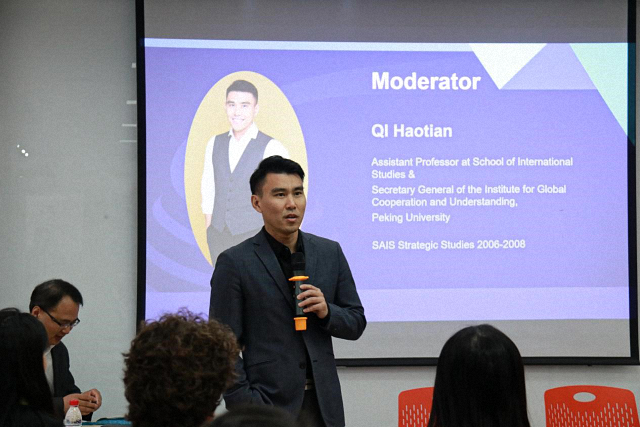
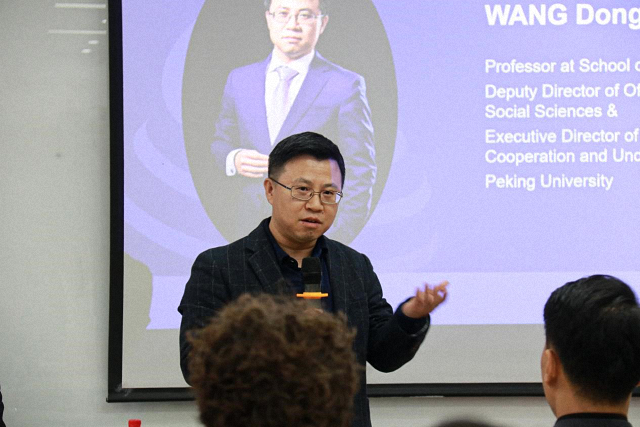
The event was moderated by Dr. Qi Haotian, Assistant Professor in the Department of National Security Studies at SIS and Secretary-General of the Research Base for Sino-Foreign Humanities Exchange. Prof. Wang Dong, Professor at SIS and Executive Director of the Base, delivered the opening remarks and extended a warm welcome to the participants. On behalf of SAIS, Dr. David Janoff Bulman, Assistant Professor of China Studies and International Affairs, also gave opening remarks.
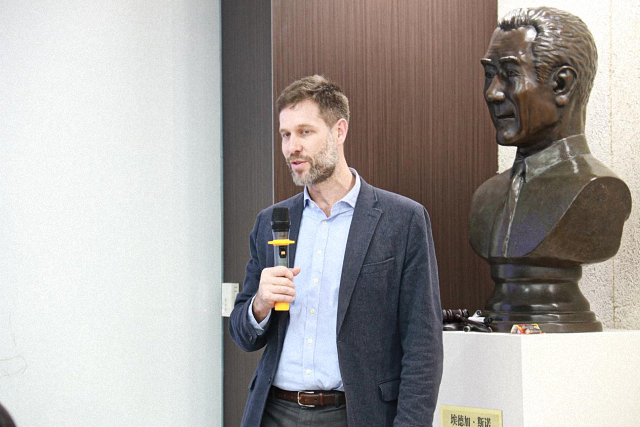
Prof. Wang Yong, Professor at SIS, Director of the Center for American Studies, and Academic Committee Member of the Research Base for Sino-Foreign Humanities Exchange, served as the keynote speaker. He began by sharing his personal story of over 40 years of friendship with American classmates, encouraging students to voice their concerns and perspectives on international affairs.
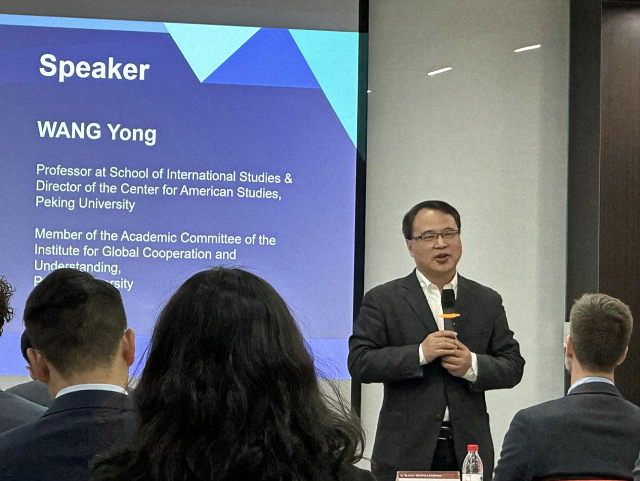
Prof. Wang first focused on economic globalization, pointing out that challenges such as inequality and the development gap cannot be ignored. Regarding China–U.S. economic and trade relations, he emphasized that the timing of the normalization of diplomatic relations in the 1970s and China’s reform and opening-up was no coincidence, and that China’s accession to the WTO was a key milestone in expanding its opening-up. Looking ahead, he expressed optimism about further cooperation between the two countries in trade and economics.
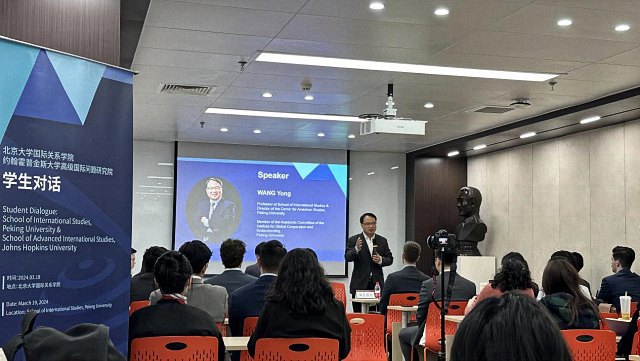
He then elaborated on China’s Belt and Road Initiative (BRI), reviewing the country’s three global initiatives—the Global Development Initiative, the Global Security Initiative, and the Global Civilization Initiative—highlighting features such as drawing on China’s development experience and rejecting zero-sum thinking. He also introduced China’s “dual circulation” strategy, which emphasizes the domestic cycle as the mainstay while promoting the mutual reinforcement of domestic and international cycles. Against the backdrop of China’s economic restructuring and global downward pressures, this framework, he argued, benefits not only China but also global development. Prof. Wang further discussed the “new trio” of Chinese exports—new energy vehicles, lithium batteries, and photovoltaic products—stressing that U.S. protectionist measures against electric vehicles run counter to free trade principles. At the same time, he welcomed Germany’s active pursuit of cooperation with China in the auto sector and expressed hopes for expanded consensus and cooperation with the United States.
During the Q&A session, Prof. Wang engaged with students on topics including China’s BRI, the role of the U.S. Congress in shaping American foreign policy, South–South cooperation between China and developing countries, China’s relations with Pacific island countries, and China–EU trade relations. The discussion was lively and constructive, with both faculty and students sharing their views openly.
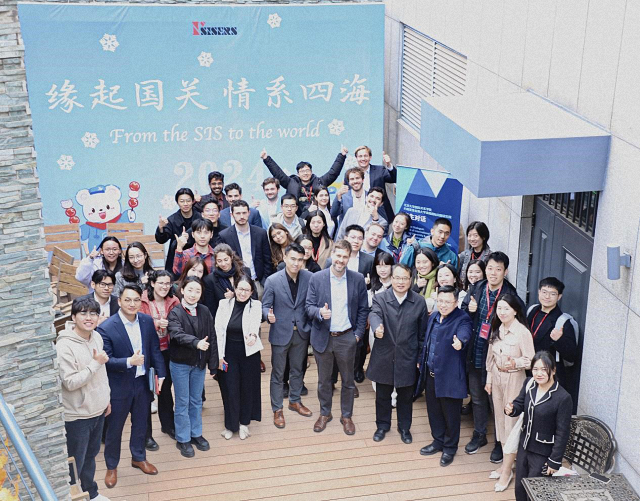
The event concluded with a group photo of the participating faculty and students, marking the success of this meaningful dialogue.